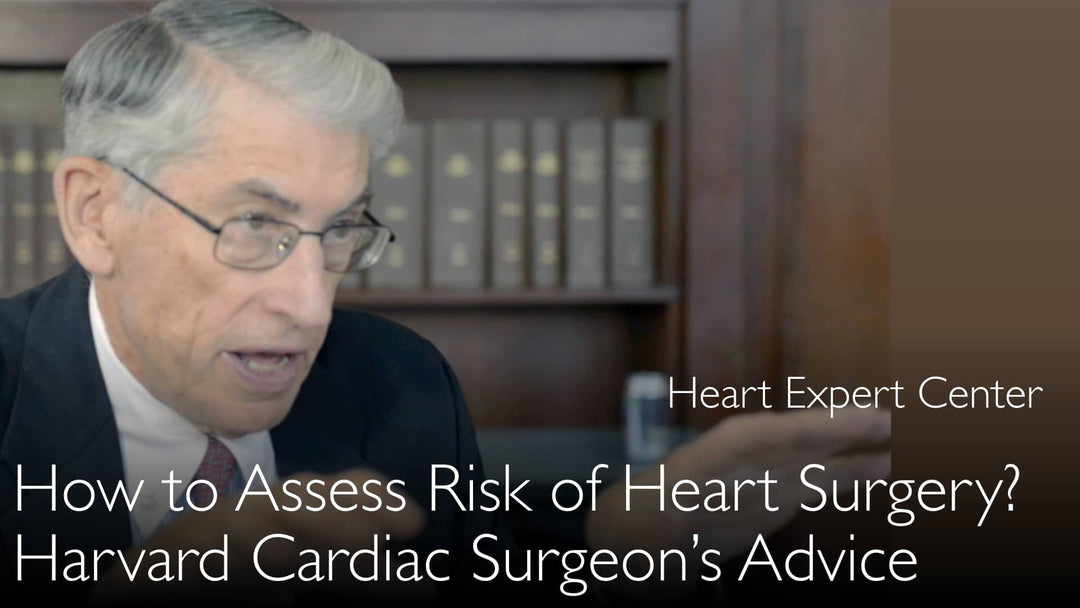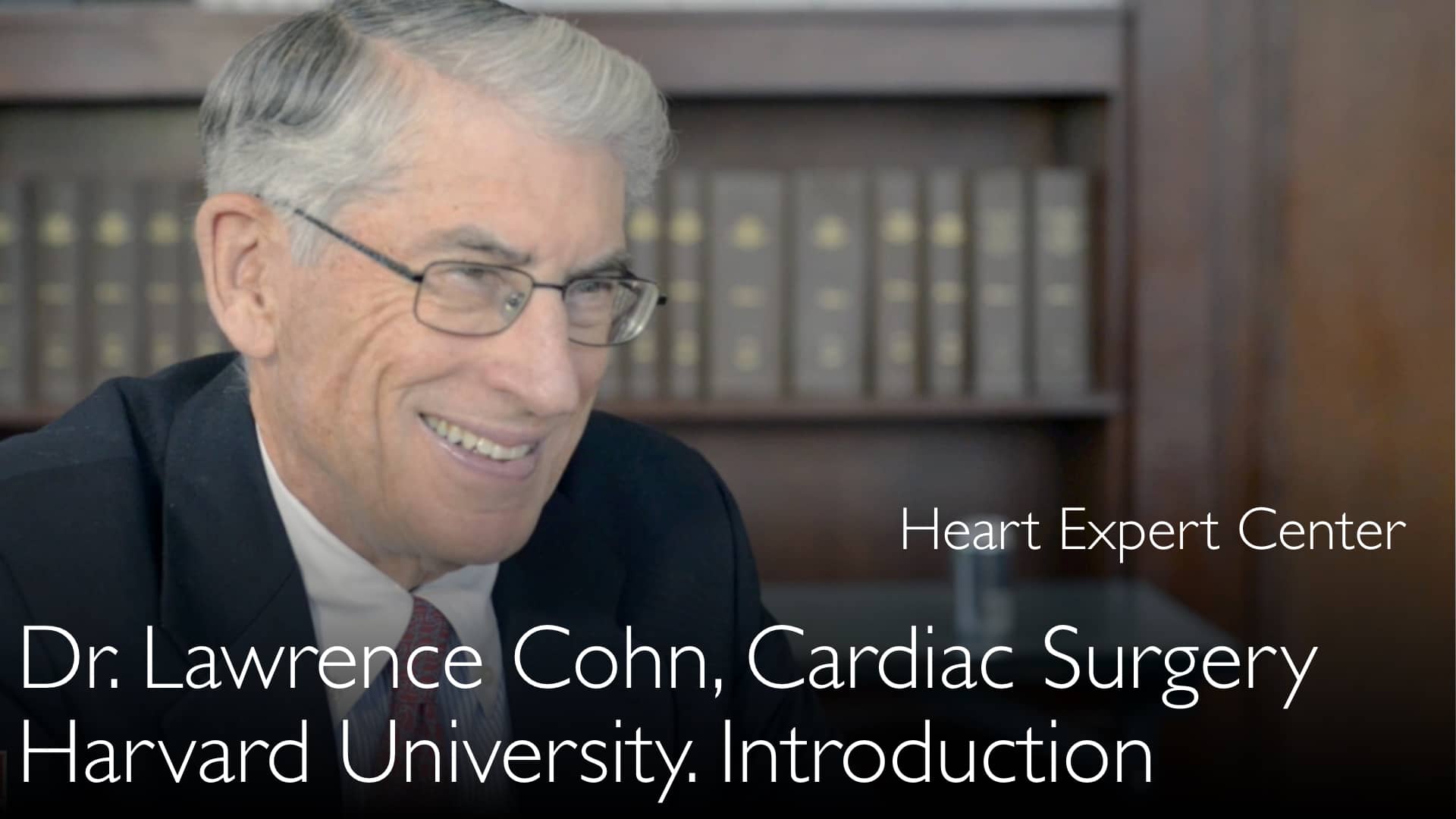מומחה מוביל בכירורגיית לב, ד"ר לורנס כהן, MD, מסביר את המושג החיוני של תמותה מותאמת סיכון לניתוח לב פתוח, ומפרט כיצד זה מסייע לחולים להשוות ביצועי בתי חולים על ידי התחשבות בחומרת מחלת החולה ולמה זה מדד מדויק יותר לאיכות כירורגית מאשר שיעורי הישרדות גולמיים.
הבנת תמותה מותאמת סיכון בניתוח לב פתוח
קפיצה לסעיף
- מהי תמותה מותאמת סיכון?
- הסבר על תמותה צפויה לעומת נצפית
- תוצאות מטופלים בסיכון גבוה
- סיכונים וביצועים בניתוח אלקטיבי
- בחירת מרכז לניתוחי לב
- חשיבות חוות דעת שנייה
- סיכויי הישרדות בניתוחי מסתמי לב
מהי תמותה מותאמת סיכון?
תמותה מותאמת סיכון היא מושג סטטיסטי המשמש להערכת ביצועי בתי חולים ומנתחים המבצעים ניתוחי לב פתוח. כפי שמסביר ד"ר לורנס כהן, MD, היא מספקת הערכת סיכון יחסית המתחשבת במורכבות אוכלוסיית המטופלים הספציפית של המנתח. מדד זה קריטי להבנת האיכות האמיתית של הטיפול הכירורגי הלבבי מעבר לשיעורי הישרדות פשוטים.
כל בית חולים המבצע ניתוח מעקפים כליליים (CABG) מייצר דוחות המכילים נתוני תמותה צפויה ונצפית. ד"ר כהן מבהיר כי התאמה זו נחוצה מכיוון שלא כל המטופלים מגיעים עם אותה רמת מחלה או גורמי סיכון לפני הניתוח.
הסבר על תמותה צפויה לעומת נצפית
לב התמותה המותאמת סיכון lies בהשוואה בין תוצאות צפויות לנצפות. ד"ר לורנס כהן, MD, מתאר תמותה צפויה כשיעור חזוי המבוסס על הבריאות הכללית ופרופיל הסיכון של מטופלי המנתח. תמותה נצפית היא שיעור התמותה בפועל לאחר פרוצדורות כירורגיות באותו מוסד.
ד"ר אנטון טיטוב, MD מסכם מושג זה במדויק: בסופו של דבר מדובר בתמותה נצפית לעומת צפויה, התלויה במידה משמעותית בחומרת מחלת המטופלים לפני הניתוח. תוצאה חיובית מתרחשת כאשר התמותה הנצפית של בית חולים נמוכה מהצפויה, דבר המצביע על טיפול כירורגי מעולה.
תוצאות מטופלים בסיכון גבוה
חלק מבתי החולים מתמחים בטיפול בחולים לבביים בסיכון גבוה מאוד, מה שמשפיע משמעותית על ציוני התמותה המותאמת סיכון שלהם. ד"ר לורנס כהן, MD, מציין כי למוסדות המנתחים מטופלים רבים בשוק מהתקף לב או בעיות לב אקוטיות אחרות יהיה באופן טבעי שיעור תמותה צפוי גבוה יותר.
כאשר מרכזים אלה משיגים תוצאות טובות יותר מהחזוי עבור חולים קשים אלה, זה מדגים מיומנות כירורגית יוצאת דופן ואיכות בית חולים. ביצועים העולים על הציפיות עם מקרים בסיכון גבוה הם אינדיקטור חזק לתוכנית ניתוחי לב מהשורה הראשונה הראויה לשיקול מטופלים.
סיכונים וביצועים בניתוח אלקטיבי
בתי חולים המבצעים predominantly ניתוחים אלקטיביים על מטופלים בריאים יותר מתמודדים עם ציפיות ביצוע שונות. ד"ר לורנס כהן, MD, מסביר כי פרוצדורות מתוכננות אלה על מטופלים בבריאות טובה יותר נושאות סיכון inherent נמוך יותר, וכתוצאה מכך שיעור תמותה צפוי נמוך יותר.
אם בית חולים כזה מדווח על שיעור תמותה גבוה מהצפוי עבור מקרים בסיכון נמוך אלה, זה מעלה חששות משמעותיים regarding איכות הטיפול. ד"ר כהן מייעץ כי מטופלים should להימנע ממוסדות עם תמותה גבוהה מהצפוי לפרוצדורות אלקטיביות, מכיוון שזה מצביע על תוצאות כירורגיות suboptimal.
בחירת מרכז לניתוחי לב
נתוני תמותה מותאמת סיכון מספקים הדרכה valuable למטופלים הבוחרים היכן לעבור ניתוח לב פתוח. ד"ר לורנס כהן, MD, מדגיש כי מטופלים should לחפש בתי חולים המדגימים תוצאות טובות מהצפוי, במיוחד those המטפלים בהצלחה במקרים מורכבים.
מטופלים פוטנציאליים should לחקור both שיעורי התמותה הכלליים של בית חולים ו, חשוב יותר, כיצד שיעורים אלה compare לתוצאות צפויות based על אוכלוסיית המטופלים שלהם. מידע זה often available through משרדי הבריאות הממלכתיים או ארגוני דיווח איכות בתי חולים, helping מטופלים לקבל החלטות מושכלות regarding הטיפול הלבבי שלהם.
חשיבות חוות דעת שנייה
חיפוש חוות דעת שנייה הוא valuable במיוחד עבור מטופלי ניתוחי לב השוקלים את אפשרויותיהם. כפי שהוזכר בהקשר הראיון, חוות דעת שנייה מאשרת כי אבחנת מחלת הלב נכונה ושלמה לפני המשך ניתוח major.
ד"ר אנטון טיטוב, MD דן כיצד חוות דעת שנייה helps מטופלים לבחור את גישת הטיפול הטובה ביותר למצבים כמו מחלת עורקים allיליים ומחלת מסתם מיטרלי. התייעצות עם מנתח לב experienced נוסף like ד"ר לורנס כהן, MD, can לספק reassurance כי תוכנית הטיפול הכירורגי המומלצת מייצגת את הגישה optimal למצב הספציפי של הפרט.
סיכויי הישרדות בניתוחי מסתמי לב
בעוד התמליל מתמקד במושג התאמת סיכון, תוצאות ניתוחי מסתמי לב specifically benefit מגישה אנליטית זו. טכניקות ניתוח מסתמים modern, including גישות minimally invasive, significantly שיפרו את שיעורי ההישרדות לפרוצדורות these.
הידע המקצועי של ד"ר לורנס כהן, MD, highlights כי סיכויי הישרדות actual depend heavily on גורמים individual של המטופל like גיל, בריאות allלית, ומצב מסתם specific. מודל התמותה המותאם סיכון helps מטופלים להבין how מנתח או בית חולים particular מבצע עם מקרים similar לשל themselves, providing מידע prognosti יותר personalized ממה שסטטיסטיקות general can להציע.
תמליל מלא
ד"ר אנטון טיטוב, MD: כיצד להבין עד כמה ניתוח לב מסוכן? תמותה מותאמת סיכון היא מושג של סיכון relative של ניתוח particular בבית חולים particular או על ידי מנתח specific. מנתח לב eminent helps להבין how להסתכל על סיכונים של ניתוח לב. סיכוני ניתוח לב פתוח לקשישים. ד"ר לורנס H. כהן, MD. מושג תמותה מותאמת סיכון helps להבין סיכונים actual של ניתוח compared עם סיכונים expected.
ד"ר אנטון טיטוב, MD: מה הסיכויים למות במהלך ניתוח לב פתוח? מהן סיבוכים של ניתוח לב פתוח? סיכוני ניתוח לב פתוח. כמה גבוהים הסיכויים להישרדות after ניתוח לב פתוח, especially after ניתוח מחלת מסתמי לב? מנתח לב pioneering מסביר מהי תמותה מותאמת סיכון. ד"ר לורנס H. כהן, MD. ראיון וידאו עם מומחה leading בניתוחי לב.
חוות דעת שנייה מאשרת כי אבחנת מחלת לב correct ושלמה. חוות דעת שנייה helps לבחור את הטיפול best למחלת עורקים allיליים. קבל חוות דעת שנייה על מחלת עורקים allיליים ומחלת מסתם מיטרלי והיה confident כי הטיפול הכירורגי שלך הוא best. תוצאות ניתוח לב פתוח.
ד"ר אנטון טיטוב, MD: כבר הזכרת את המושג "התאמת סיכון של תמותה ותחלואה". זה נראה מדד crucial. many מטופלים ומטופלים פוטנציאליים לניתוח לב מתבלבלים. could you please help להבין את המושג "תמותה ותחלואה מותאמת סיכון"?
ד"ר לורנס כהן, MD: תחלואה ותמותה מותאמת סיכון אינה something שהמטופל average הולך להבין. יש דיווח מכל בית חולים that עושה ניתוח מעקפים allיליים (CABG). הדוחות contain נתוני תמותה expected ונצפית.
עבור some בתי חולים, התמותה expected היא very high because אתה מנתח many מטופלים בשוק מהתקף לב או בעיית לב other. אתה עושה much better than תמותה expected עבור מטופלים difficult these. that means אתה very good.
מצד שני, some בתי חולים עושים many mostly מטופלים אלקטיביים. these הם ניתוחים planned על מטופלים במצב בריאות better. ניתוחים these יש סיכון lower, ותמותה היא risk-adjusted.
ד"ר לורנס כהן, MD: so if בית חולים this יש תמותה higher than what expected, that says בית החולים not עושה very good job. so אתה not want ללכת לבית חולים such לניתוח your.
ד"ר אנטון טיטוב, MD: ultimately, זה תמותה נצפית vs. התמותה expected. that depends on how severely ill המטופלים are.
ד"ר לורנס כהן, MD: yes, that's correct, exactly. סיכוני ניתוח לב פתוח. how להבין סיכון של מוות during ניתוח לב. מהי תמותה מותאמת סיכון? סיכויים למות after ניתוח מסתמי לב?





